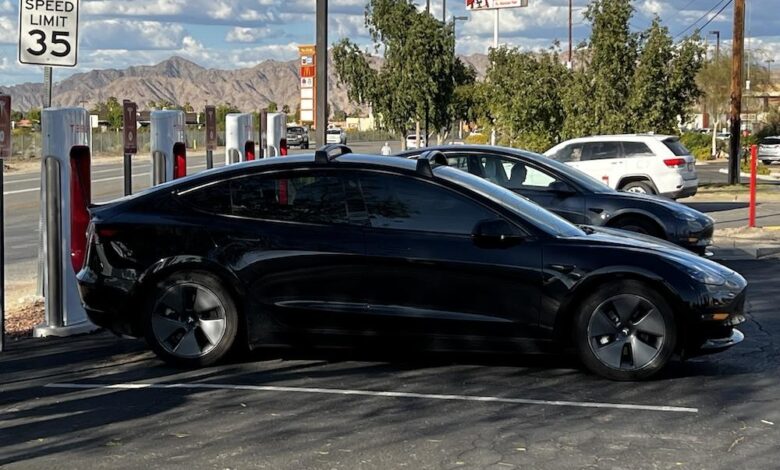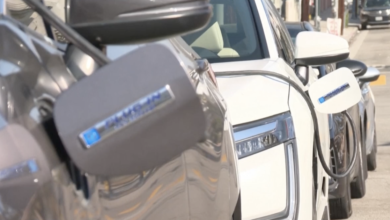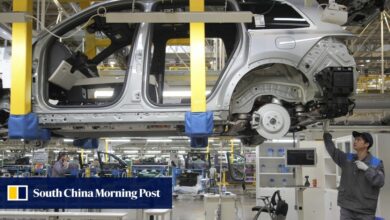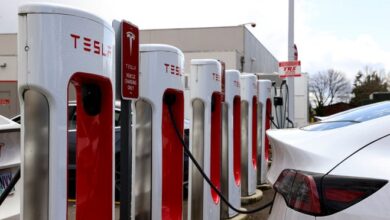Lobbying by automotive companies increases as electric vehicle sales soar

As electric vehicle sales reached an all-time high last year, the automotive industry’s
spending on federal lobbying hit a record of nearly $85.8 million after
a steady increase since 2020. In the first quarter of 2024, the
industry’s federal lobbying spending topped $23.1 million.
The automotive industry’s first-quarter federal lobbying spending
this year is roughly on par with its $23.8 million in spending during
the same period in 2023, a year it went on to pour $85.5 million into
federal lobbying — a new record for the industry.
This comes after the 2022 passage of President Joe Biden’s Inflation Reduction Act,
which aims to cut U.S. greenhouse gas emissions by roughly 40% before
2030. Under the law, the U.S. government will invest $369 billion into
energy security and climate change programs, making it the largest investment
in cutting carbon emissions in American history. The law also offers
tax credits to people who purchase new and used electric vehicles.
Amid changing regulations and the Biden administration’s push to expand electric vehicle production, the auto industry
invested in building electric vehicles while also influencing policies
in Washington that determine the rate at which automakers need to cut
emissions.
Lobbying in nearly every sector has increased in recent years, and
the transportation sector is no different. Since 2020, the automaker
industry has progressively spent more money to lobby on laws and
policies that will affect the industry each year. Top spenders include
automakers and trade associations representing car dealerships.
General Motors, the leading U.S. seller of automobiles
in 2023, was the largest spender on lobbying on automotive issues with
$14.17 million going to influence federal policy that year. An
OpenSecrets analysis found that nearly 70%
of the company’s lobbying disclosures mention issues related to
electric vehicles. In the first quarter of 2024, General Motors spent
$4.8 million, a dip from the $5.5 million it spent in the first quarter
of 2023.
Federal lobbying records show General Motors lobbied on issues
including “tax incentives for electric vehicles and charging stations”
as well as those “related to climate policy that affects the automobile
industry.”
The Inflation Reduction Act offers incentives to the first 200,000
purchasers of electric vehicles per manufacturer. In order to receive
this credit the car must have final assembly in the United States. Also,
large percentages of the battery’s components must be assembled in the
U.S. or a free trade agreement country, with the percentage increasing
each year. In August 2023, the White House announced that, since the IRA
was passed, the private sector has invested over $70 billion in the electric vehicle supply chain.
The Environmental Protection Agency also recently finalized new emissions standards
that lay out the pollution limits for “passenger cars, light-duty
trucks, and medium-duty vehicles for model years 2027 through 2032 and
beyond.” The standards require that automakers meet an average
requirement across their fleet, allowing automakers to decide how to
best meet it.
This finalized rule slows the rate at which automakers must reduce
their emissions. Groups who lobbied directly with the EPA in 2023
include General Motors, the National Auto Dealers Association and the Alliance for Automotive Innovation.
While the Biden administration has cracked down on emissions and
taken a stance favorable to electric vehicles, former President Donald
Trump recently told some of the country’s top oil executives that he
would reverse this rule and other Biden-era environmental policies, the
Washington Post reported on May 9.
Toyota,
the second-largest seller of automobiles in the U.S. and third-largest
spender in 2023, spent about $6.3 million last year lobbying on issues
related to “supply chain issues impacting the auto industry, including
critical minerals for EVs” and those “related to greenhouse gas
emissions standards.” The automotive manufacturer spent $1.3 million in
the first quarter of 2024.
Toyota Motor Corporation CEO Aiko Toyoda has publicly been skeptical of the adoption of electric vehicles. At a presentation in January,
he said that Toyota sells cars to people in places without electricity,
so solely relying on electric vehicles is not an option. Toyota
currently offers one fully electric option, a mid-size SUV called the bZ4X.
Along with massive lobbying efforts, General Motors, Toyota and other
automobile manufacturers have been taking measures to be more
competitive within the electric vehicle space. Ultimum Cells is a joint venture between LG and General Motors that supports three battery factories across the U.S. Toyota has also invested $13.9 billion into its first and only American battery factory in North Carolina.Electric vehicles were the fastest-growing car sale category in the U.S. in 2023, making up 7.6% of all sales that year. They made up 7.3% of car sales in the first quarter sales of 2024.



